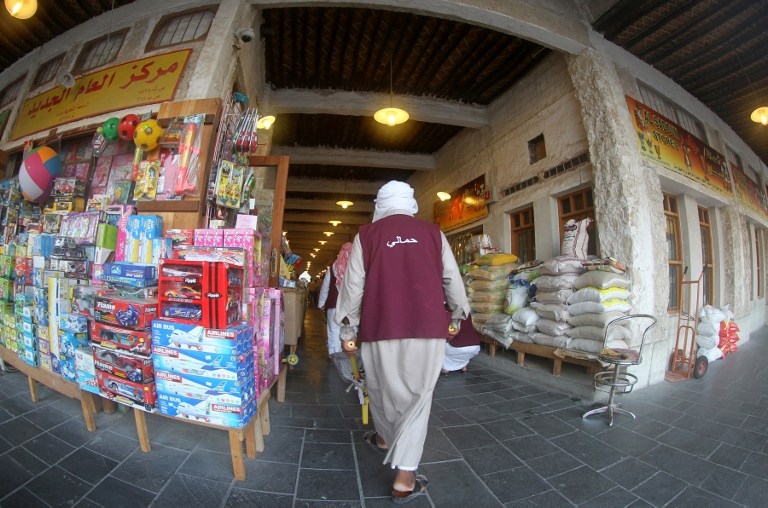Qatar mulls penalising firms over delayed migrant wages

Qatar is considering imposing penalties against firms that fail to pay migrant workers on time, one of the biggest complaints voiced by rights groups against companies in the Gulf state.
The host of the 2022 football World Cup has come under mounting international pressure to improve conditions for migrant labourers working on projects that are to stage the event.
Under draft legislation now being considered by the Qatari government, bosses who do not pay their workers on time could lose the ability to hire new staff.
The proposal would also allow the country's labour ministry to halt "all dealings" with businesses until they pay up.
The issue was discussed by the cabinet on Wednesday, said the state-run Qatar News Agency (QNA).
Under the new system, known as the Wage Protection System, firms would need to pay workers hired on an annual or monthly contract by direct deposit every month. Other staff, including those being paid by the hour, would need to receive a salary payment by bank transfer every two weeks.
The legislation would "ensure that employers fulfil their obligation of paying the workers' wages in a timely manner, and in accordance with their contracts and the applicable regulations in the State," QNA reported.
Non-payment of migrant workers, especially those in the construction sector, has become a sensitive issue for Qatar.
Last November, Amnesty International accused the government in Doha of not doing enough on the issue of non-payment despite intense scrutiny after Qatar was awarded the World Cup.
Amnesty welcomed the latest proposals but said there should be tougher penalties aimed at companies who do not pay their staff.
"It's positive that the Qatari government is focusing on the payment of wages, but I am not convinced that these measures will address the scale of the problem," said Amnesty's head of business and human rights, James Lynch.
"There should be a wide range of penalties to use (against employers) including financial penalties and criminal sentences."
A 2013 academic study, "A Portrait of Low-Income Migrants in Contemporary Qatar" published in the Journal of Arabian Studies, found that 21 percent of migrant workers in Qatar "received their salary on time only sometimes, rarely, or never".
New MEE newsletter: Jerusalem Dispatch
Sign up to get the latest insights and analysis on Israel-Palestine, alongside Turkey Unpacked and other MEE newsletters
Middle East Eye delivers independent and unrivalled coverage and analysis of the Middle East, North Africa and beyond. To learn more about republishing this content and the associated fees, please fill out this form. More about MEE can be found here.




